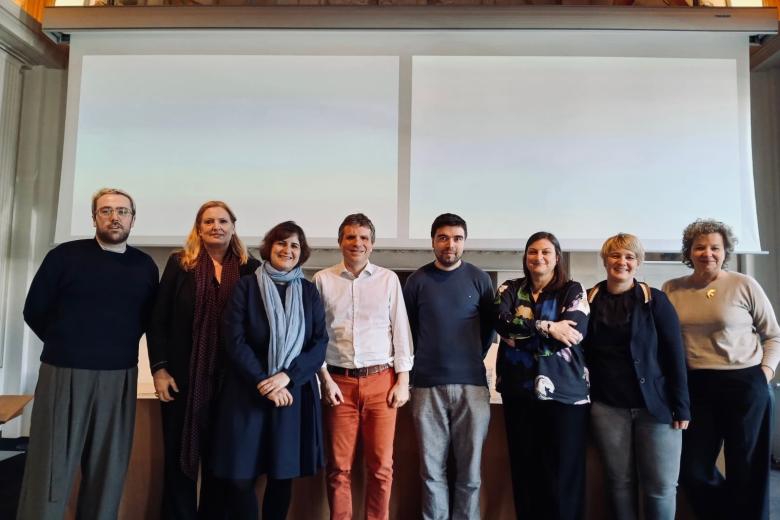GLobalization & Law Network online seminars: success despite difficult times
On 18 June 2020, the Globalisation and Law Network concluded a series of research seminars. Six enthusiastic researchers presented their ideas and latest findings to fellow GLobalization & Law Network members. The brief summaries of research projects that were subject to discussion during the second part of the academic year 2019 - 2020 are outlined below.
On 16 April, Marina Serrat talked about “Taxation policies of Artificial Intelligence in the EU”. She presented a comparative study of different EU member States’ treatment and use of Artificial Intelligence for tax purposes, from the perspective of both the taxpayers and the tax authorities to check on how the implementation of this kind of disruptive technology might affect the taxpayers’ rights.
On 30 April, André Nunes Chaib introduced his research project on the impact of social movements on the formation of international economic law. By referring to various forms of public resistance towards new international economic agreements, especially in the areas of trade and investment, he explained how he intends to use theories of legal sociology to study how social movements foster social and environmental sustainability by encouraging legal materialisation of relevant ideas.
On 14 May, Merijn Chamon explored the degree to which the Joint Board of Appeal fulfils its potential as a mechanism allowing the holding to account of the European Supervisory Authorities (ESAs). Before focusing on that specific question, the problematic accountability regime applicable to EU decentralised agencies in general was sketched. This since the ESAs are part of this larger group of bodies and because the specific mechanism of the Board of Appeal is not unique to the ESAs but instead is shared with a number of other decentralised agencies.
At the following research seminar on 28 May, Matteo Bonelli presented his ongoing research "Membership of the EU: a constitutional analysis". The research project, which he developed also as a Emile Noel Fellow at New York University, seeks to reflect on the concept of ‘Union membership’, first of all identifying and describing key Treaty provisions on the status of Member States, and then looking at how membership has evolved over time. One of the final goals of the project is to assess whether a legal ‘core’ or ‘essence’ of membership can be identified, also in the context of the discussions on differentiated integration and ’two-speed’ Europe.
On 11 June, Annalisa Volpato presented her research project on the intensity of judicial review of the acts of EU agencies. She gave an overview on the traditionally deferential approach of the Court of Justice to the review of complex technical assessments of EU institutions, describing its evolution and the principles at stake. Then, she focused on EU agencies, reflecting on the implications of a limited review for these peculiar administrative bodies. Finally, she presented some preliminary findings of a case study on ECHA.
At the concluding online seminar, Diane Fromage shared her research ideas which revolve around the impact of the creation of the banking union on the institutional structures of the EU and its Member States. She spoke about the role of the ECB, on the one hand, and national supervisory authorities, on the other. Diane also expressed her aspiration to examine how multilevel administrative cooperation compares to other EU policy areas.
Following a highly productive series of online research seminars, the GLobalization & Law Network members look forward to reconvening after the summer break.
Also read
-
Globalisation & Law Network seminar with Damian Chalmers
On 4 November 2025, the Globalisation & Law Network had the honour of welcoming Prof. Damian Chalmers to discuss his paper “The EU’s Governing by Legal Shadows”.

-
Ambassador Ammar Hijazi on Palestine and International Law
Ambassador Lecture Series with Ammar Hijazi, Head of the Palestinian Mission to the Kingdom of the Netherlands.

-
The Right to Public Participation in Environmental Decision-Making: The Case of Air Quality Matters in the EU and the Member States.
PhD thesis by Justine Richelle
